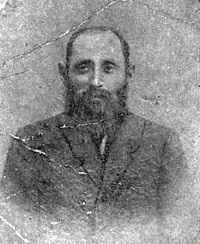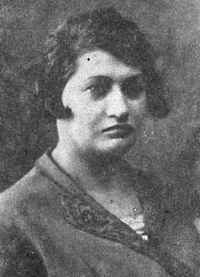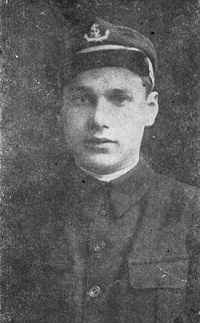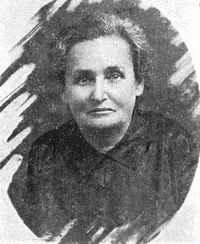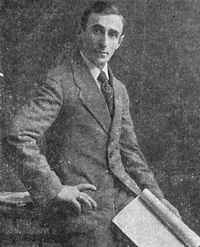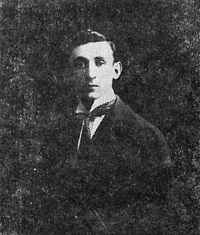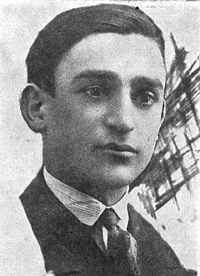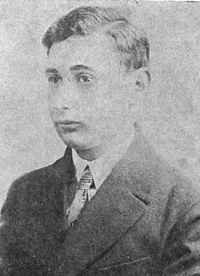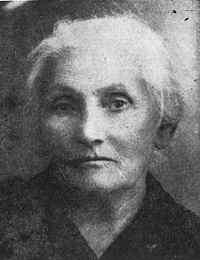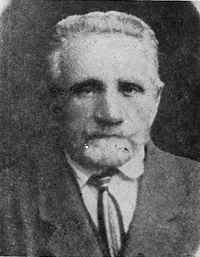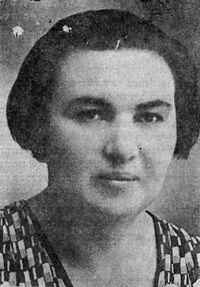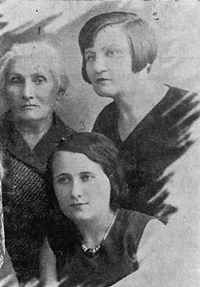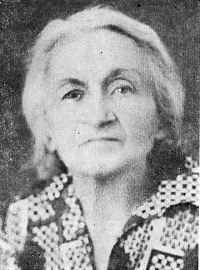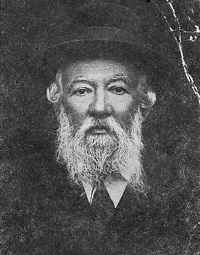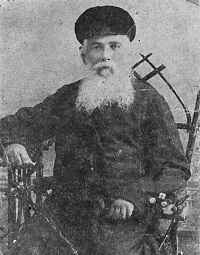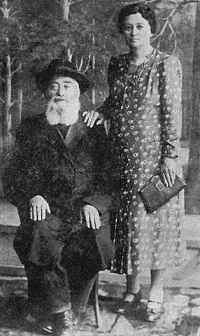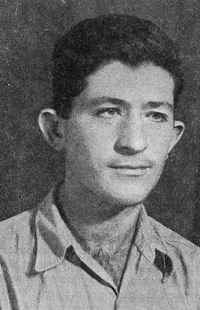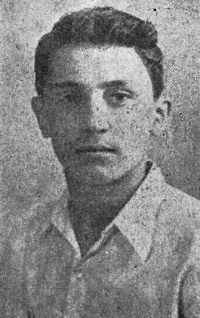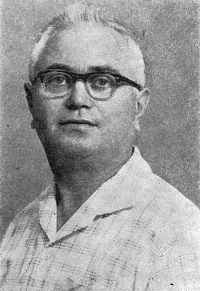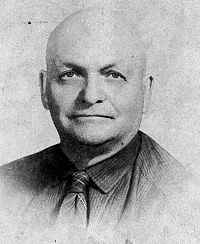|
Daniel was born in 1865 and died on 6.9.1919. He was a community leader and a modest, honest man. He conducted a traditional home – open to everyone. He insisted on giving a good education to his children. They were also involved in the life of the Jewish community in general and Zionism in particular.
May his memory be blessed!
|
(wife of the poet Yaakov Kutcher)
Leah died in a nursing home for aged, sick, single women. She just fell asleep and did not wake up again. She left no relatives behind. Leah had earned many honors, especially in the field of education and culture in the Diaspora over a period of 50 years.
When she was still a young girl, a daughter of pious parents and a granddaughter of the town Rabbi, she dared to rebel against tradition. She studied the Hebrew language and became a teacher of other young girls who were keen on learning Hebrew. She did not take any payment for these lessons, most of the time. Leah and her students were the first ones in Bendery to speak Hebrew at home and on the street. Many of them eventually became teachers.
Leah`s dream was to study education and to become a kindergarten teacher. The best place to do it was in the Prebl Academy in Warsaw which was headed by the late Yitzhak Alterman. How does a young woman from a Godforsaken place in Russia at that time and without funds reach a metropolitan distant Polish Center? Leah`s will and energy paved the way. When she finished her studies in Warsaw she returned home and opened the first Hebrew Kindergarten in Bessarabia. The Kindergarten was very successful. She was a talented teacher and was beloved by her students and their parents alike. She was also admired by Zionist circles who appreciated her work. A few years later she moved to Kishinev where she opened Yavne Kindergarten. It, too, was successful.
